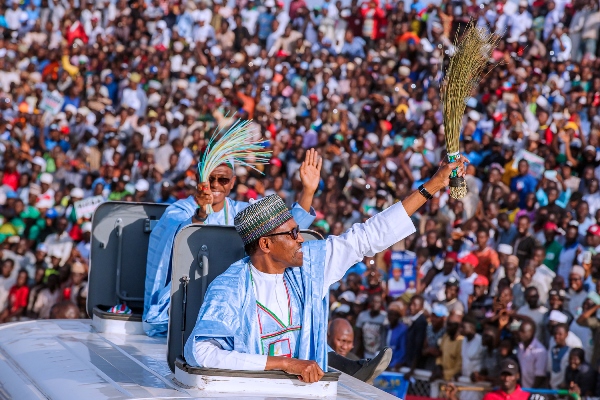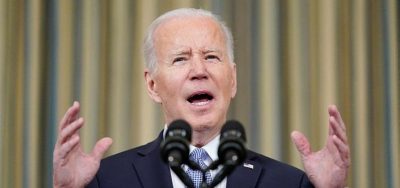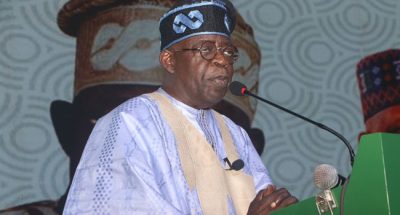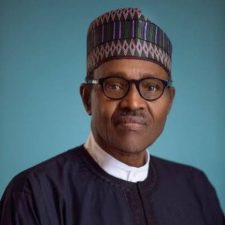By BASHIR ADEFAKA
“To many Nigerians who believe in him, they gave him their support, particularly myself even as it took my personal freedom and economy and even deprived the rights of my family to good things of life because I had already been subsumed in the direct attacks and stigma being shot by financial clients who refused to patronize me. Does it matter to me? Does it matter to any other serious minded Buharist who stayed online and in the physical 24 hours daily being on guard that the icon and arrowhead of Buharism ideology would not be kidnapped overnight? He came, he saw and, together with us, he is conquering for Nigeria.”
A profile by President-elect Muhammadu Buhari moment after he won election in 2015 and published on website of the Nigerian Television Authority (NTA) on June 1, 2015 credited to Ibrahim Ismaila Ahmed inspired me to write this. The article, which was originally titled “Nigeria’s Muhammadu Buhari, profile of a winning President”, had sought to acknowledge how enigmatic Buhari’s endurance and non-violent pursuit desire to still offer to Nigeria, what the military gulag that ousted him deprived him from offering (1984-1985), handed over to him the presidential opportunity at appointed time.
In fact, the metaphor that fits Mr. President, husband of Aisha, most is to say that he is a cat with many lives which, in Yoruba parlance, would simply be figured out as ‘Akpamakuu, Ekun Oko Awon Ole’ (meaning: killed but failed to die, the Lion in the desert of the corrupt and war mongers). It will not be from my mouth anybody would hear that President Muhammadu Buhari in the first lap of his second coming was poisoned leading him to the never experienced health issue that enemies of Nigeria cross-backgrounds rejoiced over. Have I said so? I am not sure I have said it.
Whether yes or no, the truth remains that General Muhammadu Buhari, former Military Governor, North Eastern Nigeria, former Federal Commissioner for Petroleum and Natural Resources, former General Officer Commanding 3rd Mechanised Division of the Nigerian Army, former Military Secretary and former Military Head of State, has broken the jinx that only one man had thought was his singular natural right in the history of Nigeria.
Today, he has not only made it to the level whereby this great leader, who was military head of state returned in agbada as elected president for the first lap and still got re-elected for the second lap of his second coming, and also, his popularity has even soared in ways that transcends the first man hitherto claiming sole right what, of a surety, was not a right but privilege. In all, like Olusegun Obasanjo, Buhari today has made it as second Nigerian to be Commander-in-Chief for three times, which will, Insha Allah, be certified, on May 29 this year following his resounding victory at the 23 February 2019 presidential election.
During his first lap of second coming, Buhari had seen the differences ruling by military fiat and that of ruling by democratic principle and, much tedious as it continues to be, he chooses to stand by the principle of rule of law. This makes it difficult for him as many dubious Nigerian politicians, knowing the many flaws in our constitution, appears to have found a place to rejoice exploiting the weakness of the law to frustrate his resolve to give to Nigerians what no leader in history of independent Nigeria had ever given them.
Still, at each point, much as he found himself as the only man standing on the battlefront, while he was busy thinking about how Nigeria would get better, politicians who joined him in winning the mandate in 2015 keep getting derailed by their preoccupation with next election like they were filled with derailment by starting 2019 in 2015. This led to why the Eighth National Assembly, rather than being a blessing to Nigeria became a curse. But Buhari’s resilience still made things stand to the extent that, despite the serious opposition mounted by the his former boss, Obasanjo-led Peoples Democratic Party (PDP)’s gangup, he clearly secured a re-election and that was great.
To many Nigerians who believe in him, they gave him their support, particularly myself even as it took my personal freedom and economy and even deprived the rights of my family to good things of life because I had already been subsumed in the direct attacks and stigma being shot by financial clients who refused to patronize me. Does it matter to me? Does it matter to any other serious minded Buharist who stayed online and in the physical 24 hours daily being on guard that the icon and arrowhead of Buharism ideology would not be kidnapped overnight? He came, he saw and, together with us, he is conquering for Nigeria.
No wonder Ibrahim Ismaila Ahmed did the great work in which he said the personality and character of an individual are variously influenced and shaped by the milestones that individual attains in life.
Read the first author Ibrahim Ismaila Ahmed as I credit him with this profile:
Who is General MuhammaduBuhari and what are the highlights of his life that led to his emergence as Nigeria’s President-elect?
General Muhammadu Buhari, a Nigerian muslim fulani was born in Daura, Katsina State on December 17 1942 to his parents Malam Adamu and Zulaihatu.
After completing his secondary education in Katsina Provincial Secondary School, young Buhari enlisted in the Nigerian Army in 1961 and thereafter attended the Nigerian Military Training College now Nigerian Defence Academy Kaduna.
From 1962 to 1963, he trained as Officer Cadet in Aldershot in England.
On completion, budding Buhari was commissioned as second lieutenant, in January 1963.
Between November 1963 and January 1964, Buhari attended the Platoon Commanders’ Course in Kaduna.
He similarly perfected his Military transport and logistics skills with a Mechanical Transport Officer’s Course at the Army Mechanical Transport School in Borden, United Kingdom in 1964.
As he rose through the ranks, General Buhari visited Wellington India in 1973, for a course at the Defense Services Staff College.
As a Colonel, between 1979 and 80, the no-nonsense soldier acquired a Masters Degree in Strategic Studies from US Army War College in Carlisle, Pennsylvania, United States of America.
Following his commissioned as second lieutenant in 1963, Buhari was appointed Platoon Commander of the Second Infantry Battalion, Abeokuta.
Buhari stepped up and served as Commander in the same Battalion between 1965 and 1967
From Abeokuta hemoved to Kaduna as 2nd sector Brigade Major of First Infantry Division, from April 1967 to July 1967.
The Army Officermoved tothe Third Infantry Brigade on the same rank between July 1967 and October 1968 before moving on to Thirty-first Infantry Brigade, as Commandant, between 1970 and 1971.
Buhari’sArmy career also saw him served as Assistant Adjutant-General, First Infantry Division Headquartersfor two years, beginning from 1971.
He served as Acting Director of Transport and Supply, Nigerian Army Corps of Supply and Transport Headquarters.
While at the Defence Headquarters, Buhariserved as Military Secretary and member, Supreme Military Council from 1978 to 1979.
General Muhammadu Buhari held many command posts includingGeneral Officer Commanding, 3rd Armed Division Nigerian Army, Josfrom where after the coup of December 31 1983, he was invited by his colleagues to lead the nation as Head of state and Commander-in-Chief – a position he held for 20 months before he was forced to retire following the Augustcoup 1985.
While undertaking his military duties General Muhammadu Buhari also serve in various national administrative capacities.
In the 1975 Murtala/Obasanjo regime, Muhammadu Buhari was the Governor of North-Eastern state which comprise all of the current Northeast geo political zone.
He subsequently served as Federal Commissioner or Minister for Petroleum and Natural Resources in the Obasanjo military regime in 1976.
In retirement, Buhari served as the Chairman of the Petroleum Trust Fund (PTF) set up by the Abacha administration to carry out development projects from excess funds saved from removal of petroleum subsidy.
When he threw in his hat into politics General Buhari pitched tent with the All Peoples Party (which corrected its name to All Nigeria People’s Party ANPP). He won the presidential ticket of the Party but lost the general election to President Olusegun Obasanjo.
Owing to his political appeal and large followership, General Buhari again clinched the ANPP Presidential ticket for 2007 general election but his PDP challenger late President Umaru Musa Yar’Adua won the polls.
Owing to irreconcilable differences in principles and philosophy, General Buhari bid farewell to the ANPP and together with associates across the country, formed the Congress for Progressive Change CPC.
Although the people’s General had one of his best outings in the polls, his Presidential challenge failed to stop PDP’s Goodluck Jonathan from becoming an elected President in 2011.
After a protracted but fruitful negotiation, on February 2013, Nigeria’s four biggest opposition parties merged to form the All Progressives Congress APC. The arrival of APC as a formidable opposition party clearly changed the political equation in the country. In the run off to the 2015 Elections, the party’s strength and will to remain as a united front was put to test at its Lagos Presidential primary election. Yet from all accounts the APC came out stronger with a free and transparent election that produced General Muhammadu Buhari as a candidate for the fourth time in his political career.
Following a successful campaign General Buhari clinched a historic victory in the rescheduled March 28 Presidential election. He has gone down in history as the first opposition candidate to defeat an incumbent in Africa’s largest democracy. General Buhari was a recipient of many national awards and medals including the Grand Commander of the order of the federal Republic GCFR.
He is married with children and grand children.
General Buhari’s well known anti corruption stance and drive to instill discipline in the society are widely perceived to be the most important areas his impact will be felt in Nigeria’s march to greatness.




